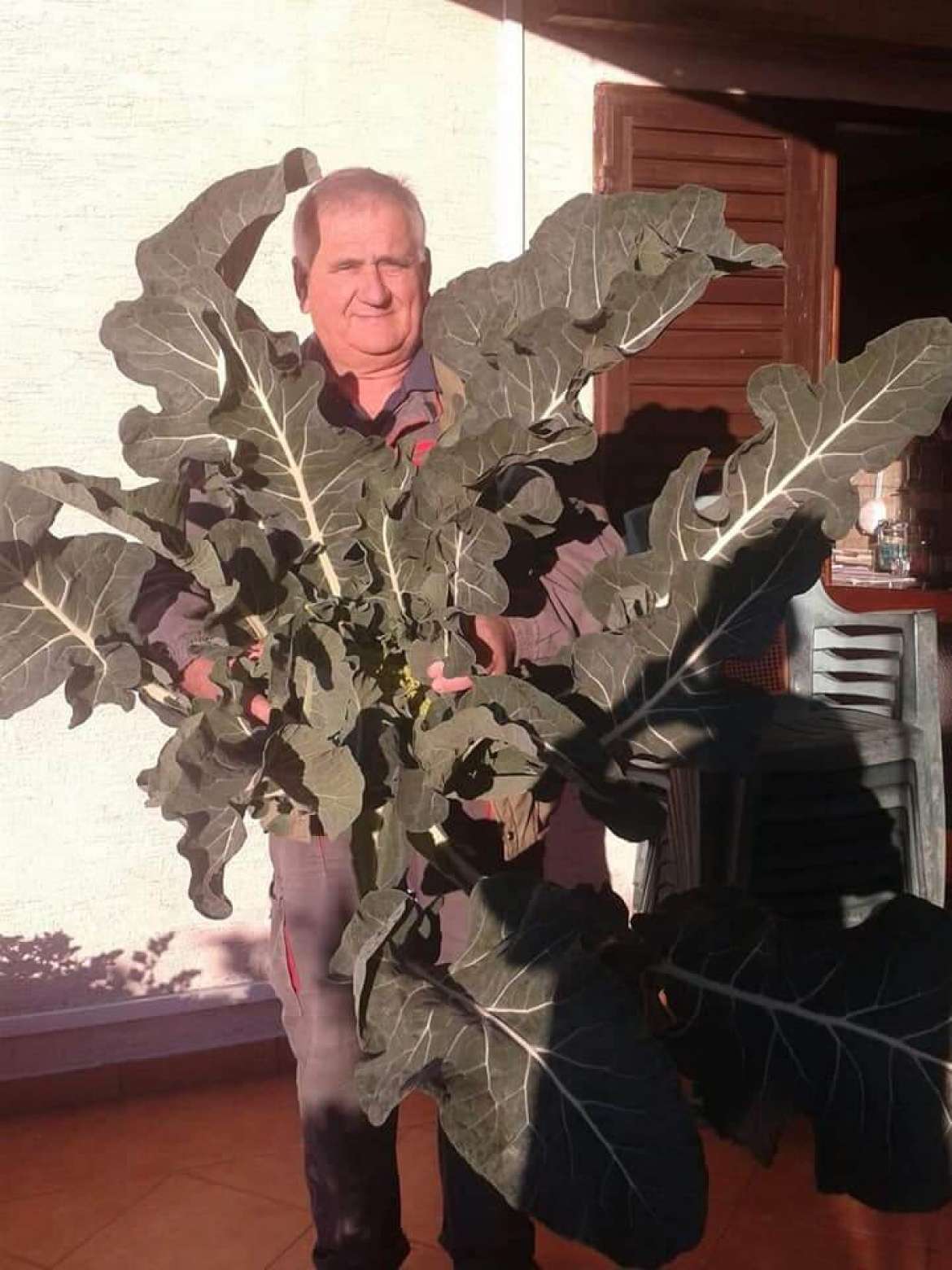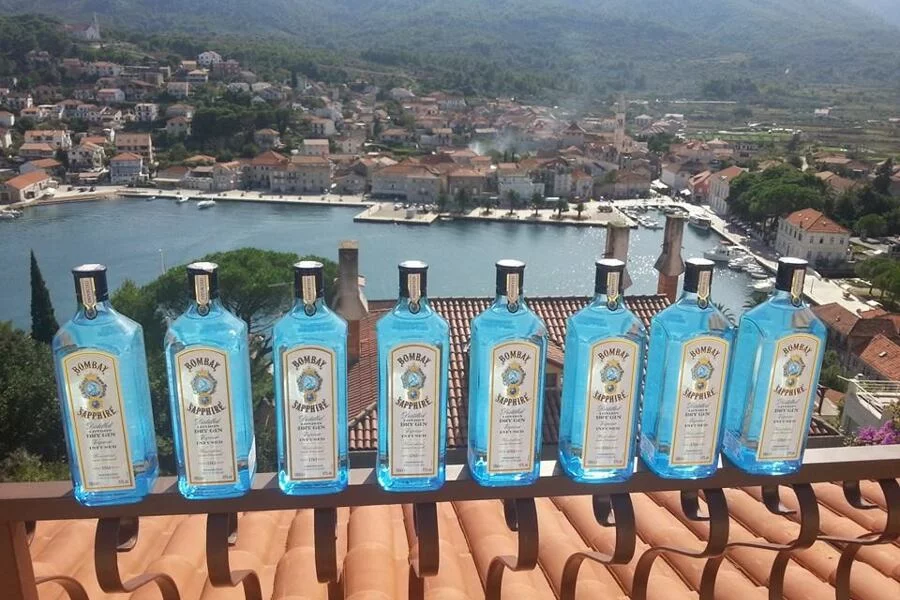July 14, 2022 - Twenty years a foreigner in Croatia. Part 5 of 20 Ways Croatia Changed Me in 20 Years - the fabulous culture of moving vegetables.
About 15 years ago, I was driving through Republika Srpska from Hvar to Belgrade to visit friends in my father-in-law's commercial vehicle. It had his name on the side and Split licence plates. As I tried to cross the border, the guard eyed my passport and me with suspicion. What was a Brit doing driving a car he didn't own with Split plates through this lesser-travelled part of the Balkans, and did I have anything to declare?
Nothing at all, I replied. He was not convinced and so I had to show him what I had, which was not much. Just my bag and 20 kilos of lemons and 20 kilos of potatoes, gifts for the family in Belgrade from the family field on Hvar from my father-in-law.
"You are bringing potatoes to Serbia? You think yours are better than ours?" Now he was really suspicious. We spoke in Serbian and Croatian, and I explained that they were a gift from my father-in-law to his relatives. The guard asked if he could take a few to try, and I told him to help himself. I was free to go. Almost.
"Just one more thing, Nije punac, nego tast." Punac is the Croatian word for father-in-law, tast is the Serbian.
A week later, I returned to Hvar by the same border, this time with about 20 kilos of paprika, a gift in the opposite direction. He just smiled.
It was one of the many examples of one of my favourite cultural practices in Croatia and the wider region - moving vegetables.

(My late father-in-law, whose tireless efforts in his family field, combined with the excellent cooking of his wife, produced the finest home-cooked food of my life)
I must confess that I had never thought about vegetables in my life until I came to Croatia (apart, perhaps, from my time as an aid worker in post-genocidal Rwanda in 1994 when my project was donated 1.5 million sachets of vegetable seeds with no packing list - it took 3 weeks to account for our gift), but vegetables (and fruit) loom large in my daily life in Croatia, and my 20 years in Croatia has made me completely rethink and appreciate local, quality food, as well as the cultural importance of transporting it to friends and extended family when driving from A to B.
Most of the credit for my enhanced passion for vegetables is due to my wife and her parents, whose family field has been the source of much of the goodness that I consumed during my 13 years on Hvar. The field was my late father-in-law's passion, and my wife and mother-in-law translated the fruits of the field into delicious and healthy local Dalmatian fare. Seeing my kids have an affinity with blitva (Swiss chard) at an early age was in direct contract to my fight every Manchester Sunday lunch to avoid the two Brussels sprouts on my plate.
Shortly after I moved here in 2003, I was in the grocery shop in Jelsa in November. There was a Brit, also living on the island, in front of me asking to buy some tomatoes - where were they?
"It is November," came the reply. "It is not the season. No tomatoes."
It had not occurred to her that tomatoes even had a season. Or to me. And if they did, when was it? Back in the Manchester supermarkets, tomatoes - very bland tomatoes - grew 24/7, 365 days of the year.
And so began one of the great transformations of my time in Croatia. I moved from being a spoiled city boy who could have any fruit or vegetable he wanted from a major supermarket chain to only being able to have fruits and vegetables when they were in season. But what I lost in availability, I more than made up for in quality. The wild asparagus may only be available for a few weeks in Spring, but WHAT a taste. (If you are an asparagus fan, you really have not tasted asparagus until you try the wild Dalmatian variety). The cucumber and tomato salads in summer are simple, but refreshing and so full of goodness. And I will never forget seeing my two kids return to Hvar after we moved. Seeing them breathing in the scents of that aromatic island was a joy to watch that November, but watching them head straight for the mandarin trees to pick a few mandarins to eat immediately was a wonderful sight. You don't get that experience when your mandarins grow in Manchester supermarkets.
After several years, I visited Manchester once more and visited a supermarket. I was shocked when I looked at the tomatoes. Where was the life, the colour. I bought some to try, but they tasted mostly of water. Dalmatia spoils you that way. Once you get used to wholesome homegrown Dalmatian vegetables, it is hard to find the quality elsewhere.
But the culture of moving vegetables was everywhere. I must admit I was a little confused one trip to Zagreb when I got into my car to find 30 cabbages and 10 litres of wine in the back to give to my brother-in-law in Zagreb. There was nothing wrong with that, but then a few months later, I found myself transporting a similar number of a different kind of cabbage in a different direction. Trips to Albania would always include a mandatory stop in the Neretva valley to stock up on watermelon, peaches and other treasures, and the roads of northern Croatia are always bountiful for bulk buying of pumpkins and paprika.
I love it.
And if nobody is driving from A to B, does that mean that moving vegetables comes to a halt? Absolutely not! Having moved away from the island, we would be regular and grateful recipients of large packages sent via post. Olive oil, mandarins, tomatoes, blitva, grapes, and a host of other goodness. Heaven. And we were certainly not alone. In addition to the post, other parents use the 'Balkan DHL' Service: Fast, Cheap, Reliable & Unbeatable, one of the finest institutions in south-east Europe.
The majesty of vegetables and the lifestyle that surrounds it is one of the many untapped treasures of Croatian tourism, as very few people locally have understood its appeal to city boys like me. One Hvar man who did was a friend of mine who runs a luxury tourism business. He told me about the moment when he finally understood the secret of successful tourism.
"I was with some rich New York clients in an olive grove for lunch and olive oil tasting," he explained. "One of them pointed to a lemon tree and asked if he could pick a lemon. I told him to pick six and forgot about it immediately. At the end of the week, he came to me to thank me for an incredible week, but he also wanted to tell me about the highlight. Picking those lemons. He lived in New York, had never seen a lemon tree, and had only seen lemons in shops, bars and restaurants. It was a powerful moment, and I realised that authentic experiences like that which are free and all around us here can be sold for top dollar."

And I can definitely confirm the magic of the freshly picked lemon. Can there be any better case for the Dalmatian lifestyle than sending one of the kids out to pick a lemon from the family tree in the garden for the evening gin and tonic on the terrace?
****
What is it like to live in Croatia? An expat for 20 years, you can follow my series, 20 Ways Croatia Changed Me in 20 Years, starting at the beginning - Business and Dalmatia.
Follow Paul Bradbury on LinkedIn.
Croatia, a Survival Kit for Foreigners will be out by Christmas. If you would like to reserve a copy, email This email address is being protected from spambots. You need JavaScript enabled to view it. Subject 20 Years Book


